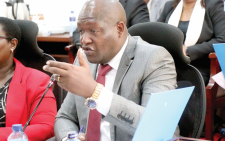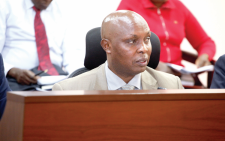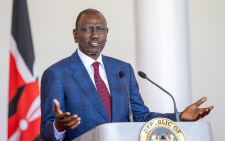Harvesting rainwater can reduce impact of floods

The ongoing heavy rains in Kenya are causing extensive damage and should start a conversation on rainwater harvesting. The rains have killed hundreds and destroyed farmlands. This serves as a warning about the urgent need to manage water better and reduce the impact of such disasters.
Over 60,000 acres of cultivated land have been ruined by floods, raising fears of food shortages.
But the effects go beyond just property damage. They threaten food security, livelihoods and the economic well-being of the most vulnerable people. We must look at steps taken so far to reduce these challenges and explore longer-term, sustainable solutions.
Harvesting rainwater offers a way to increase dwindling water supplies and reduce flooding impacts. By collecting and storing rainwater, communities can rely less on other water sources while also reducing soil erosion and replenishing groundwater. But this requires proper infrastructure and widespread adoption by individuals and institutions.
The government’s role in promoting rainwater harvesting raises concerns. While efforts may have been made before, the current crisis shows a need for a coordinated, comprehensive approach. The government should provide incentives like subsidies, and rules to encourage rainwater harvesting nationwide.
Building more dams downstream as an emergency measure deserves serious thought. Dams can store water, control floods and generate hydropower. The recent overflow of Masinga Dam shows budgets must prioritize water infrastructure and protecting the most vulnerable.
Wasting water through spillage is an environmental tragedy and a failure of governance. The weakest among us must be cushioned as they are worst affected by natural disasters like floods and droughts.
Investing in disaster prevention and climate adaptation is not just morally right but economically wise. Failing to address the root causes of disaster vulnerability stalls economic growth and undoes development gains across sectors like agriculture, tourism and manufacturing.
We must build a solid foundation against disasters to foster sustainable development and unlock the economy’s full potential. This means shifting from policies seeking short-term gains over long-term resilience, towards holistic planning that reduces disaster risks, promotes sustainable land use and empowers community resilience.
Political leadership and collective action at all levels is needed. The government must demonstrate its commitment to prioritizing citizen welfare, especially the vulnerable.
This includes strengthening disaster management, improving early warning systems and promoting community-based resilience building.
Spending on vanity projects while neglecting essential services and infrastructure is unjust and unsustainable.
We must ensure vulnerable groups can access basic amenities and protection from disasters through resilient housing, preparedness and social safety nets.
Combating corruption and promoting transparency is key to ensuring resources are used properly and fairly.
Those responsible for mismanaging funds must be held accountable to restore trust in public institutions. Only by upholding good governance and the rule of law can we tackle systemic issues perpetuating poverty and vulnerability.
Through collective action, innovation and political will, we can build a more sustainable future.
The writer is People Daily’s Business Editor












